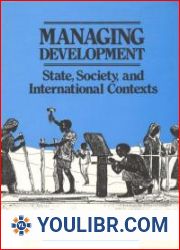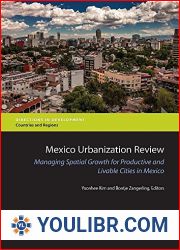
BOOKS - Managing Development: State, Society, and International Contexts


US $5.91

185723

185723
Managing Development: State, Society, and International Contexts
Author: Kathleen Staudt
Year: April 1, 1991
Format: PDF
File size: PDF 14 MB
Language: English
Year: April 1, 1991
Format: PDF
File size: PDF 14 MB
Language: English
The text is illustrated with many development cases, hypothetical situations, examples, and role-playing exercises. The book is well researched and well written. It will be useful to students and teachers of development administration. - RISA and "Staudt?s very readable text is peppered with numerous illustrative examples from throughout the world (including the United States and other developed countries) that bring potentially esoteric issues to life. Also included are brief case studies, role-playing exercises, and staggered assignments for individual projects that can be used by imaginative instructors to promote hands-on involvement. An appendix lists other useful sources for case materials and the book contains numerous valuable references to the recent literature on development. and " - Gregory D. Schmidt, Northern Illinois University and "This book offers interesting features at both the pedagogical and analytical levels. . . . The author?s interdisciplinary approach as well as her macro and micro perspectives give valuable insight into the highly complex world of the management of development. and " - International Review of Administrative Sciences and "This is a superb text, one that will be required reading by all scholars in the field of development. It is particularly important for its contribution to recent scholarship, and its use of new, innovative approaches to development. This book is a breath of fresh air in a field full of platitudes and old ideas. It will improve both thinking and teaching about development management. and " - Jane L. Parpart, Dalhousie University, Nova Scotia, Canada and "Long overdue...This text is not only gender sensitive, but interdisciplinary, theoretically grounded, policy relevant and, best of all, interesting to read. and " - Sue Ellen Charlton, Colorado State University and "While theoretically aware and non-aligned (to any official agency), Staudt?s approach to development management is essentially practical and pragmatic. Her concern for grassroots participation is combined with a full appreciation of the significance of national and international levels of decision making and implementation, and of the roles of both governmental and non-governmental organizations. In a style that is both direct and clear, she informs, but does not prescribe, about the contexts, the techniques, the institutions and the sectors in which, and with which, management operates, providing in the process a variety of challenging and realistic case studies. She also succeeds admirably in integrating gender - as a matter of common sense - into the mainstream of international development management concerns. and " - David Hirschmann, The American University, Washington D.C. and "This text provides a brilliant juxtaposition of interrelated but hitherto isolated fields in the complex and controversial political economy of ?development.? The author brings unique, timely insights and formats to bear, especially from indigenous Third World activists, authors and scholars as well as practitioners. She bridges the local and global, the political and the technical. Her book is particularly welcome at the start of the 1990s as a truly radical departure from the diversions and disappointments of orthodox development administration and structural adjustment. Hopefully, public policy will not be the same once this text is distributed, digested and debated! and " - Timothy W. Shaw, Dalhousie University, Nova Scotia, Canada and "Staudt presents a multifaceted comprehensive analysis, with illustrative examples drawn from a wide range of countries....a worthwhile contribution to recent literature reporting on and assessing the record of governmentally sponsored developmental efforts, with a focus on issues of management and administration....Woven throughout the text are commendable references to persistent deficiencies such as the dearth of participation by women in development activities and the frequency of a feeling of alienation and distance between institutional staff members and the people they should be serving. Another praiseworthy feature is inclusion of many teaching aids such as cases, role playing sessions, and ?staggered assignments? related to the preparation of individual projects....outstanding source for bibliographical information about recent literature on development. and " - Public Adminstration Review and "A useful book for those involved in development work, it moves beyond politics and policy-making into organization for action and studies political relationships between people, their organizations, and the state in development projects. Case studies, examples and role-play exercises are used to build analytic skills. and " - Intermediate Technology Bookshop The complexities facing development managers are vast. The enormous challenges to understanding the breadth and depth of development transformation are apparent in each level of this process and demand attention. Answering the need for a comprehensive introductory resource is Managing Development. This fresh perspective on development management analyzes both international and national development agencies and shows the widely differing cultural contexts in which to plan, manage, and evaluate development programs. Stressing political context and process throughout, the focus, nevertheless, in Managing Development is on bureaucratic politics and political relationships between people, their organizations, and the state in development programs and projects. The chapters examine development programs in agriculture and health, particularly reproductive health, and provide hypothetical situations, examples, and roleplay exercises. A well integrated treatment of development teaching, learning, and applications, this volume shows that much can be learned from the analysis of both successful and unsuccessful development programs. Managing Development is the essential resource for courses in development studies, political science, comparative politics, urban studies, and policy studies, as well as for planners and researchers in development management.













































